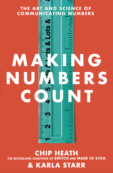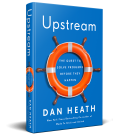Here’s Google CEO Schmidt, in response to a question about whether Google is “dumbing down” kids:
Kids use [Google] all the time because it’s a new way of learning. When I was growing up, in Virginia, they made me memorize the names of all the capitals of every county in the state. Completely useless information. So kids today are going from knowing everything to being able to search very quickly. The kids need to learn how to search because they’re going to have to search everywhere. They’re going to have search everywhere on devices that they carry with them.
Schmidt is right about the cult of memorization in schools. Most teachers do a great job of making lessons come alive, but when it comes time to measure what the students have learned, out come the standardized tests (thanks to state and federal requirements). And what’s easy to test in a multiple-choice format? Memorized information. So a student’s understanding of the Confederacy’s war strategy is funneled through questions like, “In what year did the battle of Gettysburg take place?”
There are (at least) two problems with that. First, if you’re the teacher, and you’re running low on class time, what are you going to teach — what’s on the test (i.e., factoids) or the “big-picture” stuff? Obviously you’ll teach to the test, because you’ve had it drilled into your head that the test scores are THE representation of your students’ learning in your class. If their test scores aren’t solid, you’re a bad teacher. So, yes, given a tradeoff, you and I both would teach the Gettysburg date.
Second, facts fade. Very very quickly. I propose a test to lots of school administrators who are in love with recall-type tests as an index of progress. Two weeks after your kids make solid scores, give them a surprise re-test. Same questions, same answers. And get ready to weep. All of us know and experience that our memories fade quickly — just see the forgetting curve literature — and yet we’ve designed assessments that seem to presume memories are permanent, like files stashed on a hard drive.
Google is the perfect real-world memory aid for students. It makes it easy to retrieve the factoids that will inevitably be lost from memory. It makes it so easy, in fact, that it’s foolish to obsess about teaching the factoids. If a student knows that there was a battle, during the Civil War, that represented a turning point, and she can articulate why, and she can discuss the factors that led up to the pivotal battle itself, isn’t that a picture of success? Would anyone think she’s less smart, or less aware of history, if she Googled the dates and the place names?



